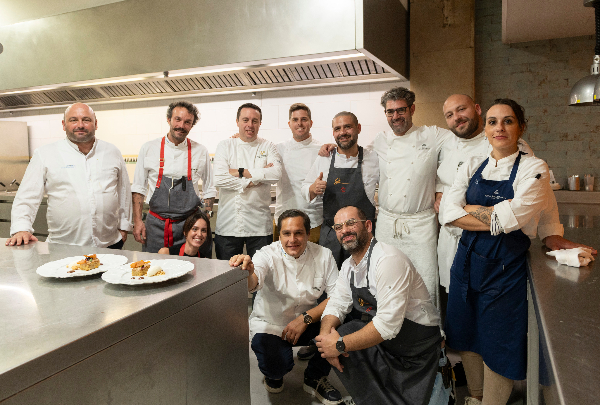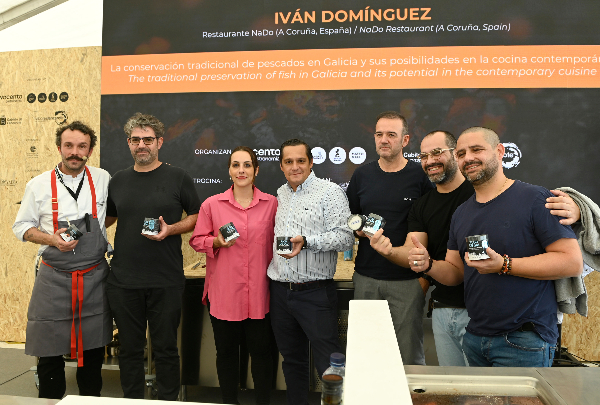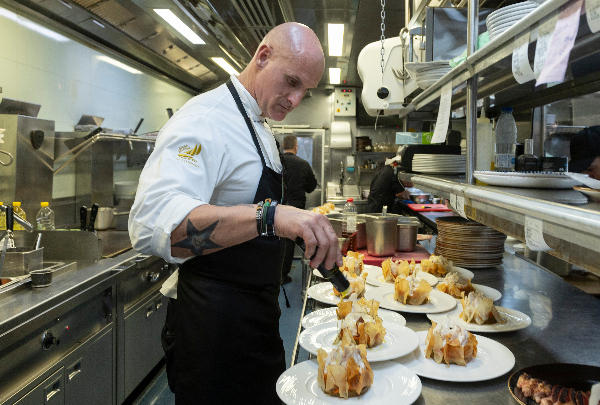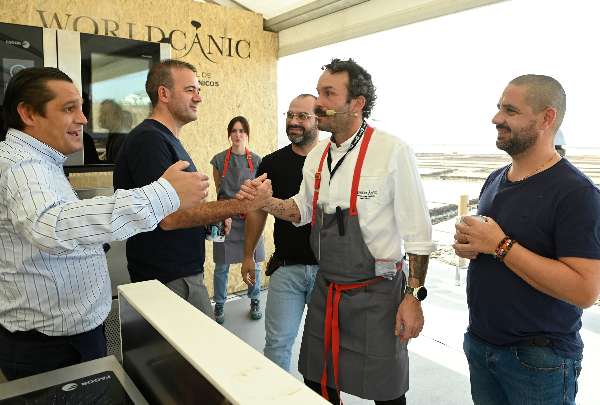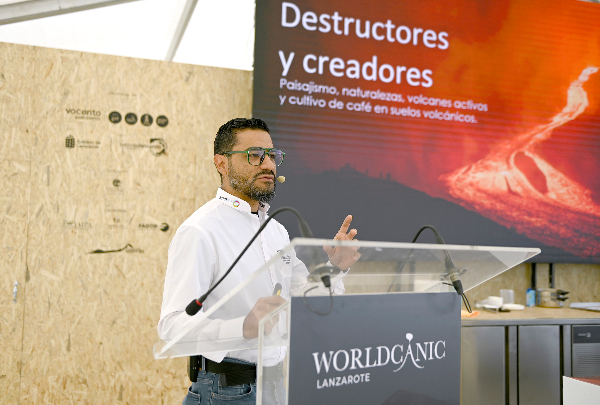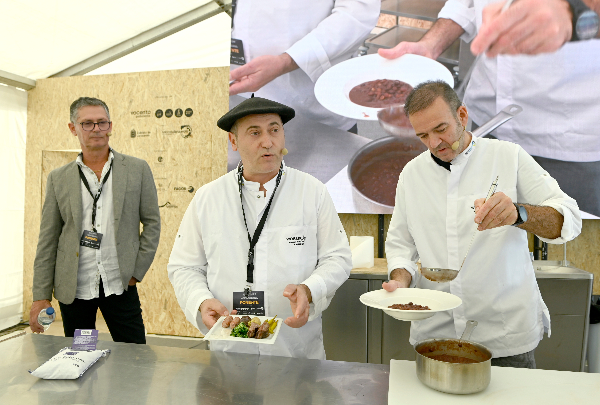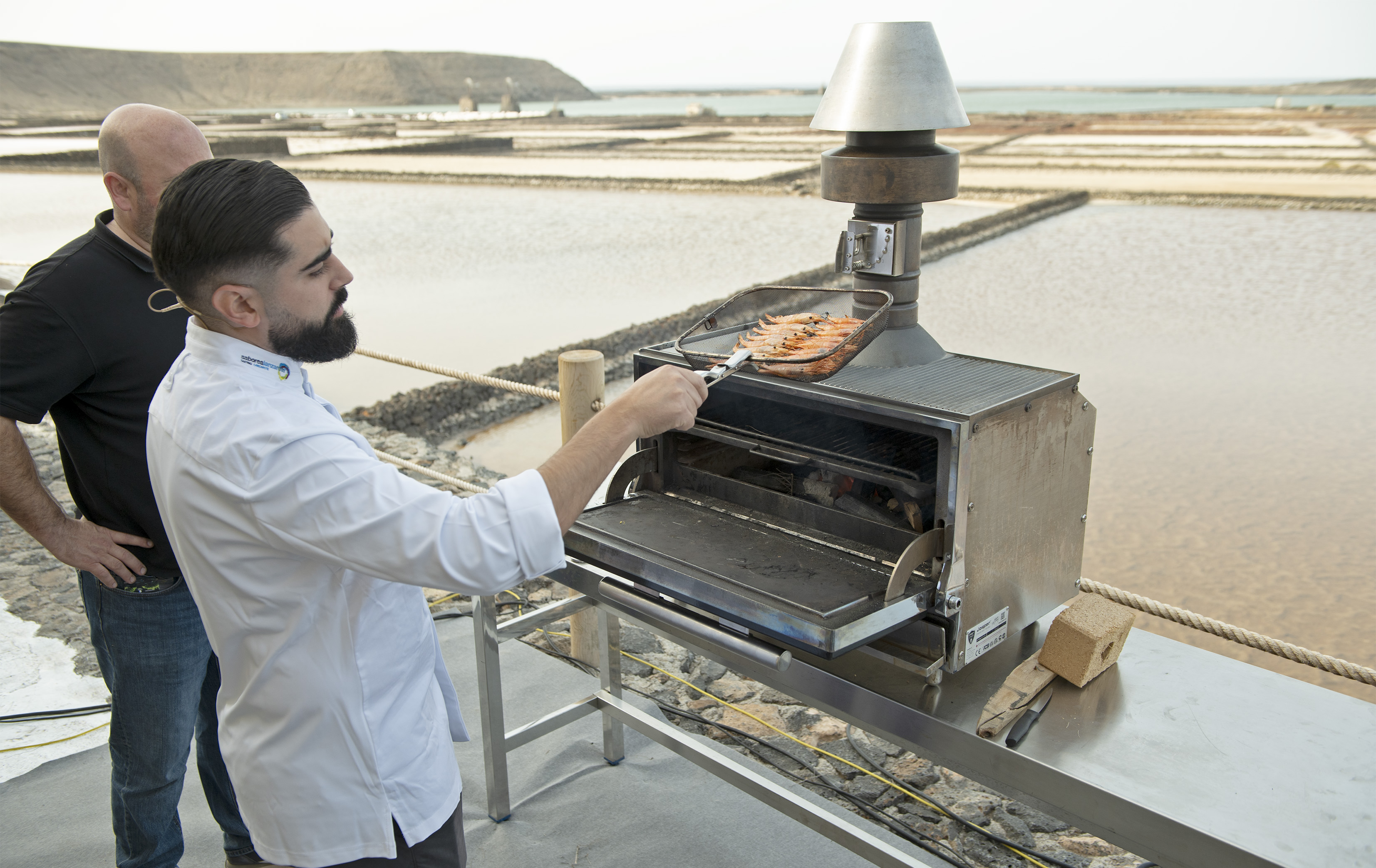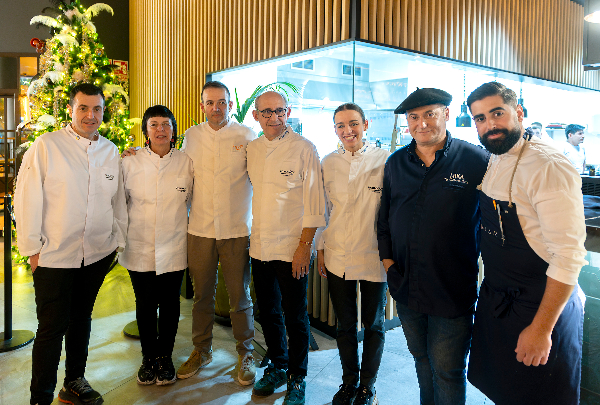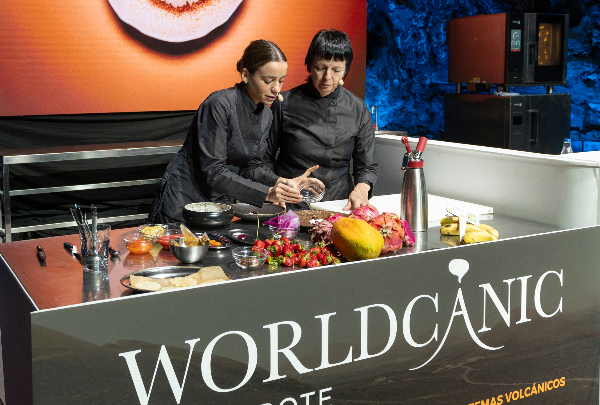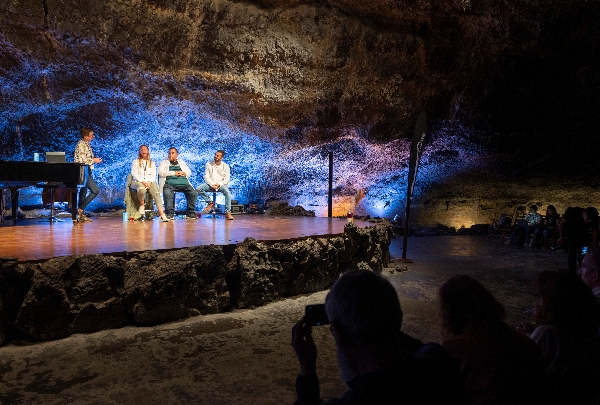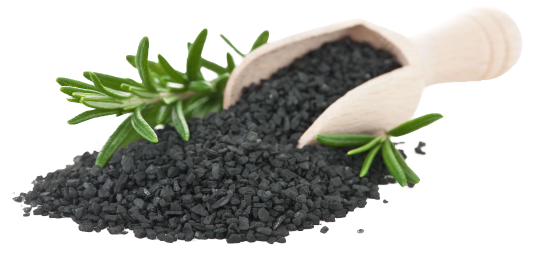News
Reflecting on the future of fishing and biodiversity
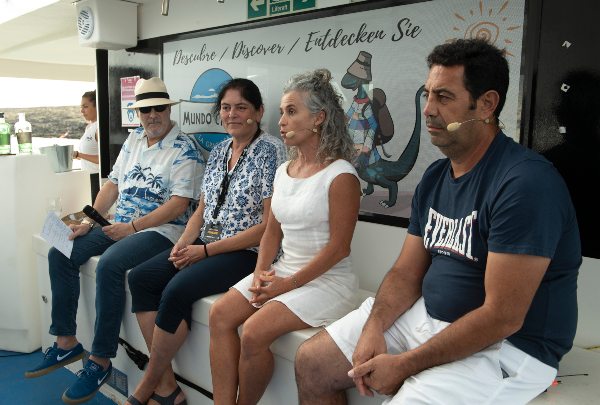
Scientists, journalists, chefs and the fishing community discuss how to improve fishing at the Worldcanic round table on a boat in the Chinijo Archipelago.
This began as a round table with three participants, but turned into a full-blown open-mike session with protagonists and opinions. The subject of the discussions was the future of fishing in general, and that of the Lanzarote Marine Geopark and Reserve specifically. The main speakers were Silvia González, biologist in the marine reserve of Lanzarote and La Graciosa; Elena Mateo, geologist and chief technical officer at the UNESCO World Geopark Lanzarote and Chinijo Archipelago, and Miguel Ángel Rodríguez, a fisherman and member of the La Tiñosa professional guild (Puerto del Carmen). The distinguished second row, journalists and chefs Benjamín Lana, Salvador García-Arbós, Ignacio Medina and Gísli Matthias. The location, the deck of a boat carrying the Worldcanic 22 congress on a visit to the island of La Graciosa.
The first speakers put the location into context, a geopark of almost 2,500 km2 encompassing the island of Lanzarote and the Chinijo Archipelago, the eleventh Spanish Geopark, established in 2015, and "composed of a considerable area of submerged spaces which help boost its geodiversity", explained Mateo. These include the Chinijo Archipelago ("chinijo" means small, in reference to its miniarchipelago status) to the north of Lanzarote, a number of islands composed of La Graciosa (the only inhabited island), Montaña Clara, el Roque del Oeste, Alegranza and el Roque del Este. With an overall surface area of 700 km2, the European Union's largest marine reserve.
It already had the frame. Then came the canvas. They touched on artisan fishing in Lanzarote, “which we want to preserve through the Geopark", explained Mateo. “There are large numbers of fish in this space thanks to the local biodiversity", added González, “although only two or three of them may find commercial outlets", said the fisherman. The debate was on. Homing in on less known species so that the profession does not disappear.
“Although there's a lot of diversity and, because it's close to the African fishing grounds, the seafood potential is better, we don't have large stocks in Lanzarote, and so we have to improve our exploitation", said González, who continued to make a stand for artisan flora: “If all fishing were artisan fishing, it would be much more difficult to do away with all the fish. Mining, too, creates more damage".
Rodríguez added: “People want certain species, but there are many more that people don't know about. So we don't bother so much with species that have less potential, and we eat them ourselves". "And that's a problem. Not only do the media and cookery have to come up with more incentives to make use of all species, but you also have your own responsibility as a guild", said the head of Vocento's Gastronomy division. The primary sector/gastronomy as a way of moving forward. The leitmotiv of Worldcanic and many other initiatives in the form of congresses organised by the publishing group's gastronomy division.
In this respect Ignacio Medina also had something to say (“Fishermen have to fight for their habitat and for what it contains, and demonstrate its value"), as did Salvador Garcia-arbós (“At the end of the day, what we need is more culture and pedagogy. As chefs, media operators and primary sector, we have to educate"), and this found a response: “But it should be the authorities who decide what to fish, considering common benefits", said the biologist.
“Going to pick up a cargo of drugs in Africa carries a lighter punishment than illegal fishing".
This argument was well received by the group. The fisherman continued to recount his problems: “Fishermen are scared to go to sea. But they're not scared of bad weather, they're scared of the institutions. Going to pick up a cargo of drugs in Africa carries a lighter punishment than illegal fishing. There's a lot of regulations, they lay down a lot of rules that make no sense, and they're killing the profession. I can't work with my son. So how can I bring him into the profession? There's no future in it”.
This produced many and varied different opinions. The Worldcanic talks. To be continued.

